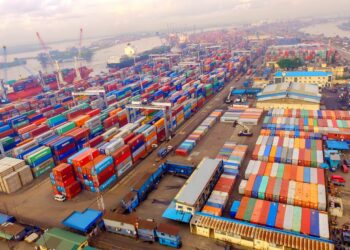The executive chairman of the Kaduna State Internal Revenue Service (KADIRS), Mr Jerry Adams, said they have eliminated all tax leakages and corrupt practices, where the state emerges fifth in IGR collection in Nigeria.
Adams said this on Saturday in Kaduna at the Chartered Institute of Taxation of Nigeria (CITN) Kaduna & District Society’s 2023
Annual Tax Week dinner.
The theme of the week was: “Taxation: A Panacea to Economic Growth and Development.”
Adams, represented by Alhaji Ibrahim Galadima, said that KADIRS had enthroned an exemplary record in the collection of taxes.
He said, “Apparently, all our processes are automated and payments can be made online without any hassle.
”Our unprecedented revenue efforts in the past years have yielded positive outcomes and made us became the cynosure of all eyes of states in recent years.”
According to him, taxation is the most elastic and dependable source of government revenue.
Adams added that in the contemporary period, taxes were not limited to the quantum of money collected but used for the purposes of the growth and development of the national economy.
The executive chairman said that taxation was now an instrument of fiscal policy used to accelerate economic growth through the functions of allocation of resources.
It is also used for income redistribution through poverty eradication and provision of public goods like education, health and infrastructure and stabilisation.
Adams commended the immediate past administration of the state for laying the groundwork and the present administration for consolidating and building on those gains which made Kaduna stand out in the IGR collection.
He also commended the selfless and relentless efforts of the members of staff of KADIRS in the performance of their official duties.
Earlier, the auditor general of Kaduna State, Mr Abubakar Abdullahi, said taxation was not just about collecting revenue.
He said, ”It is about creating an enabling environment for businesses to thrive, attracting investments, and providing equal public services to citizens.
“It is through effective tax policies and administration that we can bridge the gap between economic development and social welfare, ensuring that prosperity is shared by all.”
Abdullahi advocated dynamism of the tax system, adding that it would keep pace with the changing economic and technological landscape.
“We must strive for simplicity, transparency, and fairness in our tax policies, minimising the burden on taxpayers while maximising revenue for national development.
”To achieve this, collaboration and cooperation between the Government, tax professionals, and taxpayers are paramount.
“By working together, we can create a tax system that encourages voluntary compliance, reduces tax evasion, and fosters a culture of tax payment as a civic duty,”he said .
Abdullahi acknowledged the hard work and dedication of tax professionals who tirelessly navigate the complexities of tax laws, advising individuals and businesses.
According to him, they are also contributing to the growth of the country and ensuring compliance with tax regulations.
Also speaking, the Kaduna district chairman of the CITN, Mr Dalhatu Abdulazeez, said taxation played a significant role in the development and progress of the country.
According to him, taxation is not merely a means of revenue generation for the government, but a mechanism that fosters socio-economic growth, promotes good governance, and ensures a more equitable distribution of resources.
Abdulazeez said CITN has been at the forefront of promoting professionalism, knowledge, and expertise in the field of taxation.
“As the premier professional body for tax practitioners in Nigeria, the Institute has been instrumental in shaping tax policies, providing guidance to professionals, and upholding the highest ethical standards in the practice of taxation,”he said.
Abdulazeez said that the event brought together professionals, experts and stakeholders in the field of taxation to celebrate the achievements, advancements and challenges faced in the realm of taxation in the country.
He also said the annual tax week featured visitation to orphanage homes, sport competitions and meaningful interactions with past chairmen of the CITN.
Abdulazeez thanked their sponsors and partners for their support, and members of the district for their dedication and hard work.
By most accounts, food inflation is a global challenge which bites harder in poor and developing countries.
In Nigeria, experts say reason for the worrying level of food inflation is not farfetched-the removal of fuel subsidy and floating of the exchange rate come top even as the government makes efforts to address the situation.
Perceptive analysts have tried to establish the nexus between the twin challenge of food inflation and food insecurity and their mutual inclusivity
According to them, same variables—high cost of fuel, conflicts, drought, climate change, insecurity, inter alia—must be tackled headlong while dry season farming needs to be ramped up.
Data from the National Bureau of Statistics (NBS) shows that food inflation rate in October 2023 was 31.52 per cent on a year-on-year basis, 7.80 per cents points when higher compared to October, 2022 records which stood at 23.72 per cent.
To this end, governments at all levels are exploring the potentialities in dry season farming with a view to reaping bountifully therefrom.
Sen. Abubakar Kyari, the Minister of Agriculture and Food Security, said the federal government was targeting to increase wheat production by over 70, 000 hectares across the nation’s wheat production zones through via dry season farming.
According to Kyari, a yield of 875,000 metric tonnes is expected for the nation’s food reserve.
Kyari listed the ministry’s focal areas which hinges on integration, sustainability, and resilience to its challenges.
He said that these spanned the immediate, short, medium and long term.
“The most pressing actions we are currently handling is preparation for the next dry-season farming beginning from November.
“To this end, some preparatory activities have been carried out and many others are at the advanced stage’’, he said at a while marshaling out the way forward for the nation’s agriculture sector at a news conference.
He further said this included certification of available planting materials for some food security crops in readiness for dry-season farming; aggressive promotion and preparations for dry season farming.
“Also, the implementation of the dry season wheat production starting in November as part of the National Agricultural Growth Scheme and Agro Pocket (NAGS-AP), projects funded by the African Development Bank.
“Under this scheme, the target is to produce wheat over a 70, 000 hectares across the wheat production zone of the country.
“This is with an expected yield of 875,000 metric tonnes for our food reserve; blending of appropriate fertilisers to support this year’s dry season farming.
“While making provisions for next year farming season well in advance; providing Train-the-Trainer for extension agents involved in dry season farming. This will be in collaboration with wheat producing states and other partners such as flour mills’’, he said.





